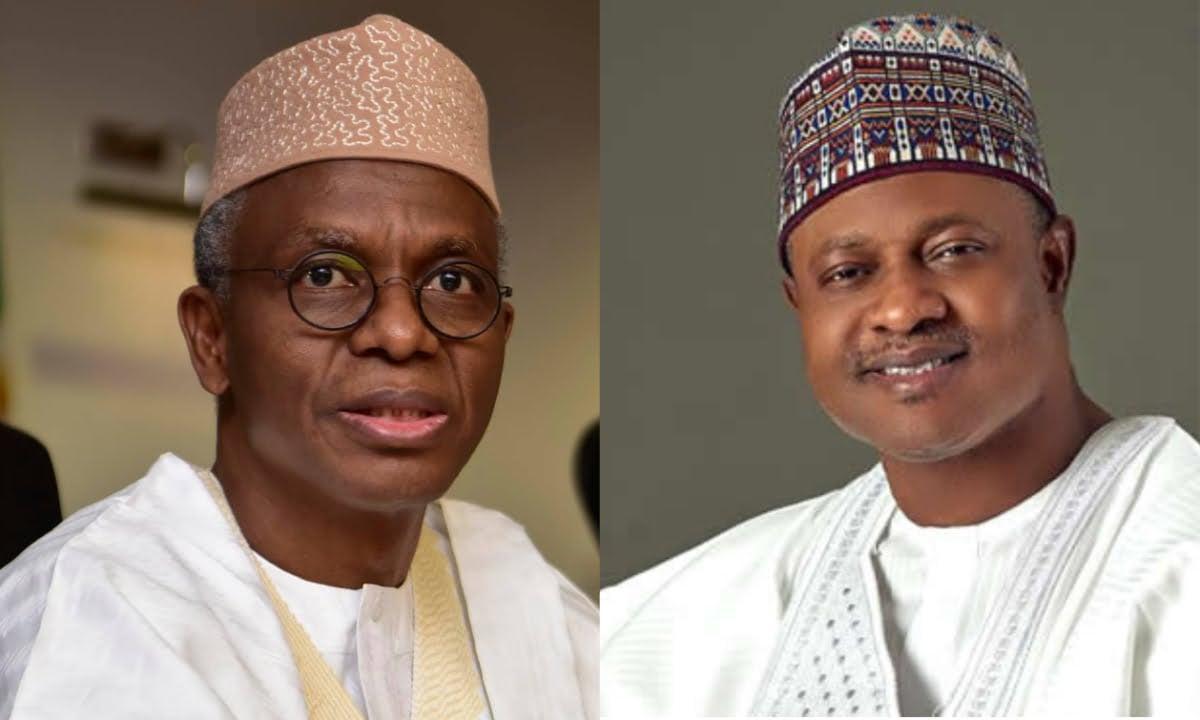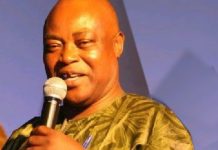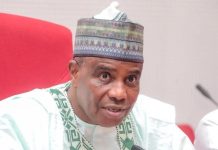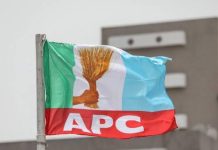Abba Hamisu Sani
Africa-Press – Nigeria. One of the latest political developments in Nigeria is the escalating tension between former Kaduna State governor Nasir El-Rufai and his successor, Governor Uba Sani. The clash between these two influential figures has sparked widespread debate and concern across the state and beyond.
El-Rufai, a prominent member of the opposition coalition under the African Democratic Congress (ADC), recently accused Governor Uba Sani of sponsoring thugs to disrupt a political meeting he organized in Kaduna. The meeting was part of the inauguration of a transition committee for the coalition of opposition parties.
In response, Uba Sani’s administration accused El-Rufai of attempting to destabilize the state. The Kaduna State government subsequently issued what it described as a final warning to the former governor, signaling a deepening rift between the two politicians.
The incident in question involved suspected thugs who disrupted the inauguration ceremony of the ADC-led coalition’s transition committee in Kaduna. Participants were attacked, and property was vandalized. The meeting included members of the All Progressives Congress (APC) faction opposing the state government, as well as representatives from the People’s Democratic Party (PDP), Social Democratic Party (SDP), New Nigeria People’s Party (NNPP), and Labour Party.
El-Rufai Accuses Police of Complicity
Former Governor El-Rufai expressed outrage over the reported inaction of police officers deployed to the scene. He accused them of complicity in the violence, alleging that senior officers, including an Assistant Commissioner of Police, stood by and watched as the chaos unfolded.
“If the authorities don’t end the introduction of thuggery into Kaduna politics, God help us. Nobody has a monopoly on violence or thugs. We will take decisive steps to ensure this does not repeat itself,” El-Rufai declared.
He vowed to escalate the matter to the Police Service Commission, claiming that the police violated regulations by failing to intervene during the attack.
Police Respond to El-Rufai’s Allegations
The Kaduna State Police Command responded by blaming El-Rufai for the incident. According to the police, the former governor failed to notify law enforcement and other relevant security agencies about the meeting, despite repeated warnings and advice.
Police spokesperson Deputy Superintendent Mansir Hassan stated that the command had launched an extensive investigation into the alleged political violence and shooting incidents involving political thugs.
“The investigation is ongoing, and anyone found culpable—regardless of status—will face the full weight of the law. Furthermore, any hotel, event center, or similar facility that permits political gatherings without prior notification to the police or other relevant security agencies will also be held liable,” the police said in a statement.
This measure, according to the command, is intended to ensure due process and prevent thugs or miscreants from hijacking political gatherings to cause mayhem or disrupt public order.
ADC Coalition Members Distance Themselves from El-Rufai
Meanwhile, a group of concerned ADC members, coalition partners, and stakeholders from Kaduna’s 23 local government areas have distanced themselves from the transition committee inauguration organized by El-Rufai.
At a press conference, the group accused El-Rufai of attempting to hijack the coalition structure for personal gain. Adamu Dattijo, speaking on behalf of the group, criticized El-Rufai for running a one-man show and urged the ADC National Working Committee (NWC) to intervene.
“Recent developments have compelled us to speak with one voice and to alert the national leadership of our party and the general public about the activities of certain individuals who, instead of strengthening the ADC, are bent on dividing and weakening it ahead of the 2027 general elections,” Dattijo stated.
He further accused El-Rufai of refusing to recognize the duly elected Kaduna State ADC executive committee and other respected stakeholders of the party.
“He runs a one-man show, taking decisions without consultation and holding meetings only with his personal loyalists, particularly SDP remnants, while sidelining the authentic ADC leadership and grassroots structures across the 23 local governments of Kaduna State. This is not only disrespectful but also destructive,” Dattijo added.
Political Fallout and Implications
The political battle between El-Rufai and Uba Sani—once close allies—is viewed by many observers as detrimental to a state already grappling with heavy debt and high youth unemployment. Critics argue that the conflict is driven by personal political interests rather than the welfare of Kaduna State.
This rivalry has exposed deep divisions within the political landscape of the state. It is particularly striking given the history between the two men: Uba Sani previously served as El-Rufai’s Chief of Staff during his tenure as governor. El-Rufai later sponsored Sani’s bid for the Senate and played a pivotal role in ensuring his emergence as governor.
Now, the fallout between them has become a public spectacle, with accusations flying from both sides and various stakeholders taking sides. The situation has raised concerns about the future of political stability in Kaduna and the broader implications for governance and development.
As the 2027 general elections approach, the political landscape in Kaduna is likely to remain tense. The outcome of this power struggle could shape the direction of opposition politics in the state and influence national dynamics as well.
For More News And Analysis About Nigeria Follow Africa-Press







